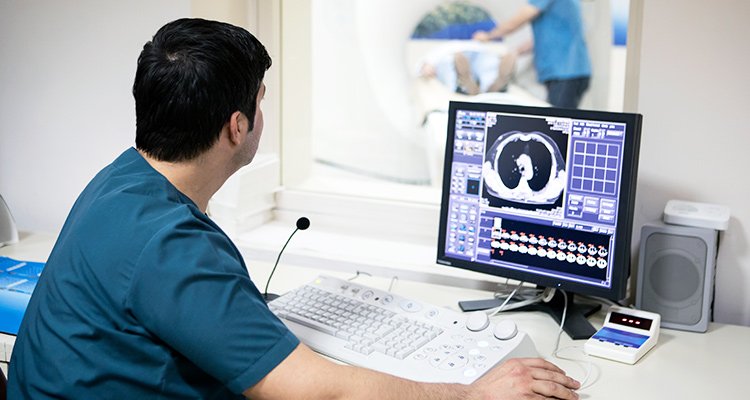
Magnetic Resonance Imaging
MRI is a non-invasive procedure that does not use ionizing radiation like X-rays. MR imaging uses a powerful magnetic field, radiowaves and a computer to produce detailed pictures of soft tissues, bones and virtually all other internal body structures. MRI's are typically ordered when certain diagnoses may not be assessed adequately with other imaging methods such as an X-ray, ultrasound or CT scans. MR images are read and interpreted in a timely manner by on-site, board-certified radiologists at SOS to allow physicians to more quickly and accurately diagnose and treat medical conditions.
MRI Locations
Dewitt - Widewaters
5719 Widewaters Parkway
Syracuse, NY 13214
Phone: (315) 251-3171
Heritage Commons
5496 East Taft Road, Suite C
North Syracuse, NY 13212
Phone: (315) 883-5833
SOS has three MRI units and two locations for your convenience.
At each location, we have a GE Wide Bore 1.5 Tesla unit which is ideal for claustrophobic or larger patients who are uncomfortable in traditional closed MRI units. We can complete your MR scan in much less time with substantially higher image quality than that of an open MRI.
